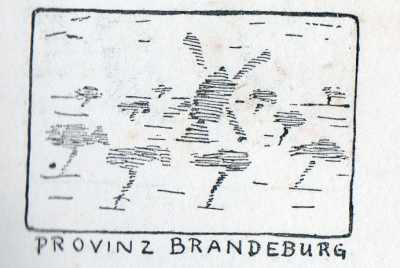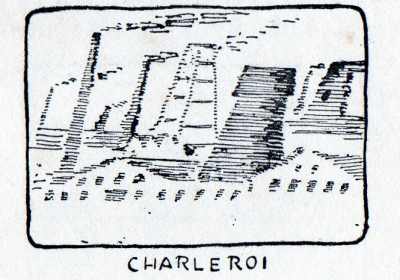Chapter Two - Belgique, France
D. R., Belgique, France
If I were wealthy enough, and if such things were on sale in the open market, I should certainly start making a collection of countries.

I have discovered that frontiers are by no means to be despised, although I am not fond of customs officers, and passport inspections bore me.
I nevertheless notice with a delight which is always fresh that when I cross the frontiers from one country to another, I penetrate into a new world, with different houses and a different language, different policemen, a different colour of the soil and different scenery.
A blue railway-guard is replaced by a green one who, in his turn, a few hours later, will make way for a brown one. Really, it’s just like the Arabian Nights. Czech apple-trees are followed by the fir-trees of Brandenburg on white stretches of sand, a windmill waves its arms as if it was running away, the country-side is neatly levelled out and produces chiefly advertisements of cigarettes and margarine.
Then rocks covered with ivy, hills which have been hollowed out by mining operations, deep green river-basins, the forges and the foundries of steel-works, the iron ribs of pithead towers, slagheaps which look like recently extinguished volcanoes, a medley of rustic scenery and heavy industry, a concerto in which the shawm and the carillon accompany the factory siren: Verhaeren in his entirety, Les heures claires as well as Les villes tentaculaires.

The whole of Flanders as the old poet portrayed it: the country which has not found enough room for its treasures and keeps them all in one pocket; winsome Belgium; a mother with a baby in her arms, a young soldier watering a horse, an in at the bottom of a hill, the chimney-stacks and formidable towers of industry, a Gothic church and an iron-foundry, some cows among the mine-shafts – all these things neatly arranged like objects in an old fashioned shop – heaven alone knows how room has been found for them.
Ah, but now there is more elbow-room. This is France, the country of alders and poplars, poplars and plane-trees, plane-trees and vine-yards. Silvery green, yes a green silverness is the colour of it; pink bricks and blue slates; a slight veil of mist, more light than colour, Corot.

Not a mortal soul in the fields; perhaps they are pressing the grape-crops, the gladsome wine of Touraine, the gladsome wine of Anjou; Balzac’s goodly wine and the wine of Monsieur le Comte de la Fère. Garçon, une demi-bouteille and here’s to you, turrets of the valley of the Loire!
Black-haired women dressed in black. What, only Bordeaux? Resinous fragrances are wafted on the night air; here are the Landes, the region of the pine-trees. Then a different fragrance, keen and exhilarating: the sea.
Hendaye, all change! An official with the face of a young Caligula in a shiny three-cornered hat scrawls a magic sign on the luggage, and with a lordly gesture ushers us on to the platform. Well, so far, so good: I am in Spain.
Camerero, una media de Jerez. So far, so good. A devilish fine Spanish girl, her fingers dyed with henna. Now then, keep away from there. All the same, I wish I could take that official, as a stuffed specimen, home with me!
